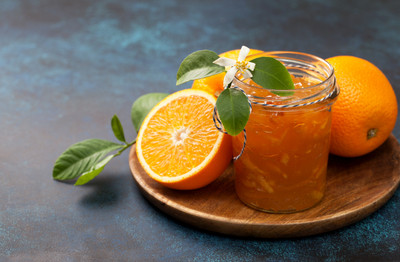Marmalade Season
Posted by The Wares Team on 12th Feb 2025
Doesn't winter feel like a long season? By the time February comes along, we're all desperate to see some sunshine and signs of the spring to come! So why not treat yourself to some uplifting home projects and crafts that make you feel good?
The great news is, February is classically associated with marmalade. And what could be more joyous than the sight of lots of glass jam jars lined up and filled with jewel-like orange marmalade? So, let's gather up our glass jars and prepare to make this delicious breakfast treat.
Why is February marmalade season?
January and February are the traditional marmalade-making months in the UK because Seville oranges are in season. These marmalade-making marvels have a short window of harvesting, meaning they are only available for a short time. They are renowned for their extremely bitter taste, which is wonderful when combined with sugar to make marmalade (but not great for juicing or eating!)
Did you know?
These beautiful oranges can actually be frozen whole so you can make marmalade later in the year if you're short of time or are lucky enough to find a glut of them.
What do you need to make marmalade?
Everyone tends to have their own preferred pieces of kit for making marmalade. The most important initial piece of equipment is the pan in which you'll boil the oranges with water and sugar. Make it large, with a heavy base and of good quality. You can even buy specialist jam and marmalade-making pans which are perfect for the job. You'll also need a sugar thermometer, especially if you're new to preserve making. Last but not least, don't forget your marmalade jars. You can use a variety of glass jars such as recycled jam jars or Kilner glass jars to store your results. Just remember to ensure they are clean, sterilised and dry before you fill them.
What is the best marmalade recipe?
Many people have their own recipes that they pass down throughout the generations. There are also some great recipes online that either use traditional methods or smart shortcuts, such as this very easy marmalade recipe, which only takes a couple of hours (far shorter than many traditional recipes).
You'll need 500g of whole Seville oranges, two litres of water and 1.5 kg of jam sugar. To make it, simply boil the oranges whole in two litres of water until they are very soft, and pour the liquid into a large saucepan. Cut them into wedges and flick out the pips before squeezing the (very juicy) wedges over the pan. Thinly slice them and then add the slices to the pan with the jam sugar. Dissolve the sugar over the heat and boil the mix for up to ten minutes, stirring now and again. When a small amount of the mix dropped onto a cold plate sets and forms a wrinkle, you'll know it's ready. Let the marmalade sit for 15 minutes before you pour it into your prepared glass jam jars.
See the full recipe here: https://www.bbcgoodfood.com/recipes/shortcut-seville-marmalade.
What kinds of 'twists' are there on traditional marmalade?
Some wonderful marmalade recipes include various exciting ingredients to create a twist. For example, you might see marmalade made with additions such as whisky or rhubarb or marmalade made with grapefruit, limes or a combination of citrus fruits. Check out some of these more unusual recipes for inspiration! How to make marmalade recipe - BBC Food
What are the best marmalade jars?
Everyone tends to have their own favourite style of preserving jars. We find that Kilner glass jars are very popular, as are traditional glass jam jars. But you can use any kind of glass jars that you have at your disposal. The important thing is to make sure they are clean, sterilised, dry and ready to close with a lid. A greaseproof paper disc is also a handy addition to prevent any mould from forming on top of the marmalade. It acts as a seal without the need for chemical preservatives.
What are the best tips for good marmalade?
Marmalade making experts have some great tips for hobbyists to try. Generally speaking, your skills will improve with practice, but other great tips are:
1. Only use top quality Seville oranges that are not bruised 2. Shred the orange peel, rather than dicing it. Keep it quite chunky.
3. Don't overcook your marmalade. Take it off the boil as you test it. An overcooked marmalade will become rubbery.
How can I enjoy my marmalade glut?
Why not decorate your glass jam jars with labels and ribbons and gift away spare marmalade? You could even sell some of it at a local fayre or fundraiser. Remember that it will also keep quite happily for months in a dark pantry, especially once it is correctly sealed. However, it won't last for long if you combine it with a fresh loaf of warm bread and a pack of quality butter!

